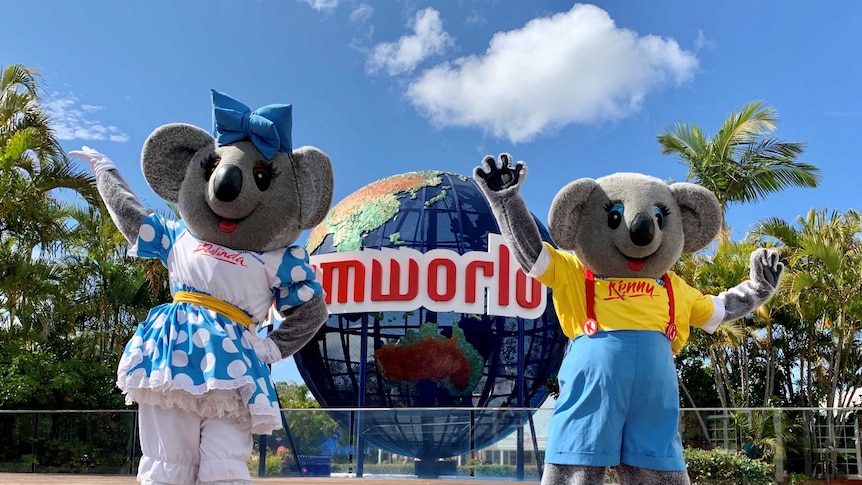Queensland Premier Annastacia Palaszczuk has called on Dreamworld to “do the right thing” and invest in koala research after the theme park spent $2.7 million in government funding on a roller-coaster instead of conservation work.
Key points:
- The Opposition says conditions to ensure future funding for conservation should have been applied
- The government says it took the impacts of the pandemic into consideration when approving Dreamworld’s spending request
- Hundreds of hectares of land on the northern Gold Coast will be conserved as koala habitat
Last week Tourism Minister Stirling Hinchliffe confirmed that Dreamworld asked to repurpose the money for the new ride in early 2020 and that the request was approved.
Announced in 2019, Dreamworld’s Future Lab was to become Queensland’s first genome research facility for native animals and was designed to boost conservation efforts against threats to koalas like chlamydia.
Today Ms Palaszczuk said Dreamworld should put its own money back into the Future Lab project.
“The tourism department gave money, through grants, to places like Dreamworld to expand their offerings to the public,” she said.
“We had COVID and we weren’t having the international tourists and only domestic tourism was starting up again, so they chose to rechannel that money into another item.
“I’m hoping Dreamworld will now do the right thing and invest their money into that project.”
LNP environment spokesperson Sam O’Connor said while Dreamworld’s reputation has been tarnished “a little bit”, the government’s approach had “no transparency about it”.
Dreamworld has been contacted for comment.
Conditions needed, opposition says
Mr Hinchliffe told an estimates hearing last Tuesday that Dreamworld requested to repurpose the money for the new ride in early 2020.
“In view of the Future Lab project being placed on hold, the Queensland government approved that the funding previously approved for the research facility be repurposed to support the construction of the new ride, taking into consideration the immediate impacts of the pandemic and the appeal of new tourism offers likely to attract returning domestic visitors and international tourists when borders reopened,” he said.
Mr O’Connor said the government should have insisted Dreamworld proceed with the research project at a later date.
“The government approved that money being put into the roller-coaster,” he said.
“How did they not have some sort of condition on that, at a future time when Dreamworld was in a better financial position, they go ahead with the project that they originally agreed to?
“It was completely ridiculous that it had to come out through this process and there was absolutely no transparency about it.”
In a statement issued last week, a Dreamworld spokesperson said the Future Lab remained “on hold” and that $3.5m had been raised for animal conservation through its foundation.
Major conservation acquisition
Meanwhile, the state government has announced 400 hectares of land at Pimpama’s Greenridge site will be conserved as koala habitat in order to offset land being cleared for the $2.1 billion Coomera Connector highway.
The state government has spent $126m on the Coomera Connector so far.
Sixty-eight koalas have been identified as living in the Greenridge area.
“It adds to our $24.6m commitment in this year’s budget to restore koala habitat, reduce the threat to koalas in targeted hotspots and deliver innovative research,” Environment Minister Meaghan Scanlon said.
“As part of the project, more than 700 hectares within the stage one corridor has been surveyed to monitor the area’s koala population.
“There are currently 128 koalas being monitored in the program and more than 600 health checks have been carried out.”
Mr O’Connor welcomed the acquisition, saying “you can’t downplay it”.
“This is basically the size of the current developed area of Pimpama, which is one of our fastest growing suburbs,” he said.
Negotiations between the City of Gold Coast and Greenridge’s previous private owners have been protracted and were subject to a Supreme Court judicial review last December.
The ABC understands the site was purchased by the state government from the Kornhauser family in July, with the sale price commercial-in-confidence.
.
